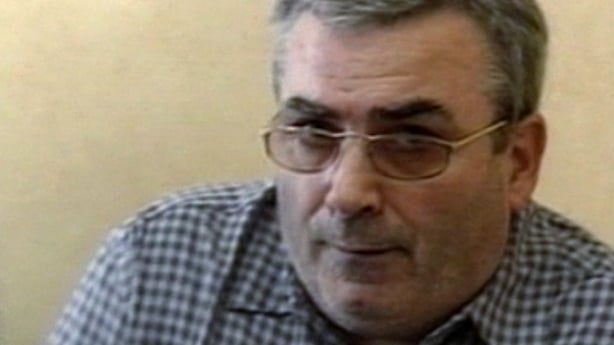Operation Kenova was set up in 2016 to investigate allegations of murder, kidnap and torture dating back to the 1970s.
Across its four main investigative areas it's looking at more than 200 murders, including 120 carried out by the so-called Glenanne gang of loyalist terrorists, which included serving members of the security forces.
Its principal investigative strand focuses on the role of a senior IRA man turned army agent given the codename Stakeknife.
He's believed to have been Belfast republican Freddie Scappaticci, who died in April 2023 having fled Belfast after being outed as an informer.
Scappaticci led an IRA unit charged with catching and killing informers.
But he was possibly the most valuable agent of them all, referred to by a former senior British army officer as the "golden egg".
The allegation is that his police and military handlers may have sacrificed other informants to protect him.
A team of up to 70 detectives worked on the inquiry which looked for evidence that Stakeknife carried out murders and whether his army and security service handlers colluded in them.
In 2018 Jon Boutcher, who was then head of the Operation Kenova team, began interviewing suspects including republicans and members of the security forces.
Forty people were interviewed under criminal caution.
The following year, the team began submitting evidential files to Northern Ireland's Public Prosecution Service (PPS).
In June 2020, Jon Boutcher told the Northern Ireland Affairs Committee that his team had submitted evidence to the PPS on criminal offences such as murder, kidnap, torture, misconduct in public office, perverting the course of justice and perjury.
He said it covered alleged offences by terrorists and members of the security forces.
On 10 August 2021, Mr Boutcher provided a breakdown of the files already with the PPS - the bulk of which were linked to the Stakeknife investigation.
He said 31 files related to 17 murders and 12 kidnaps had been submitted which contained 50,000 pages of evidence.
These included files on four individuals the PPS had decided in October 2020 should not be prosecuted.
They included two members of the security services and a former public prosecutor for offences including perjury and misconduct in a public office.

In June 2022, Mr Boutcher told MPs on the Northern Ireland Affairs Committee that 33 files had been passed to the PPS.
In April 2023, the PPS confirmed that 26 case files remained under active consideration. These included alleged paramilitaries, former police officers and former members of the intelligence and security services.
The files were said to contain a range of potential offences including murder, false imprisonment, serious assaults and misconduct in public office.
It said the files had been received in phases between October 2019 and February 2022 and contained vast amounts of information including 1,000 witness statements and 12,000 documents running to more than a million pages.
The PPS said due to the cross-cutting nature of the evidence it was not practical to take decisions in isolation. The decision as to prosecution in all the outstanding cases would be taken following a consideration of the totality of the evidence.







